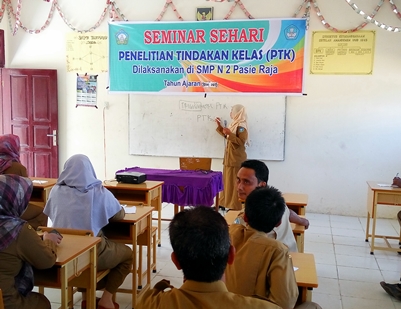There are several significant reasons that indicate necessity of education reform. First, are education access and its implication for improving quality of life. As it is indicated in the contexts of education reform, Indonesia has not fully accomplished universal education at the primary and the secondary levels even though basic education has been improve to 9 years and made compulsory.
 |
| The Reasons of Educational Reformation in Indonesia |
The dropout rate for each Primary school is also high. The Government is concerned that children who are not enrolled in schools are not being equipped with the necessary skills and knowledge to be productive citizens in the knowledge age. Education has to support economic growth and promote sense of integration of Indonesian archipelago. In Indonesia, education plays an important role to increase individual income, therefore relevancy of education need to be improved.
(Baca Historical Backgorund on Indonesia Educational Reform )
(Baca Factors Innfluencing The Implementation of EducationalReform)
Second, is preparing young generation for the knowledge age. The Government recognizes that education is the most effective long-term solution to achieve national development and stability for the nation, to promote diverse local culture and customs by broadening common core elements in curriculum. In addition, education has to prepare young generation to participate in local, national and global economies. In order to prepare young generation to live in knowledge-based economy and democratic society, the youth should have more engagement in building new skills and attitudes needed for work and a social life in the knowledge. Consequently, reform on learning is crucial for providing a foundation for lifelong learning, character building, problem solving and critical thinking; and developing flexibility to manage change. Curriculum reform has to contribute to the foundations for a skilled workforce confident in its ability to compete in future global markets.
Third, is the need to develop information technology (IT). Up to this moment Indonesia has yet not a clearly insisted on the use of information technology (IT) in its educational policy. The provision of computers and peripherals to schools and IT training for teachers and students are very limited. Because of the knowledge age, IT development has to become a national agenda for education reform despite of our scarcity of resources.
Four, is implementation regional autonomy. Law of the Republic of Indonesia Number 22, 1999, concerning Regional Administration stipulates authority of the regions. Article 7, verse 1 of Law No.22, 1999, states that authority of regions includes authority in all governmental sectors, except authority in foreign policy, defense and security, the administration of justice, monetary and fiscal, and religious affair. The consequent of regional autonomy for education is a district-based education planning, management and quality assurances. This is not a simple shift from a centralized to a decentralized educational planning and practices. The government needs to provide a well-prepared and well-informed district-based education system.
Fifth, is improving madrasahs. The quality of Madrasahs or Islamic religious schools which is part of Indonesian national education system is, in general, lower than regular schools. Besides offering Islamic religious education, madrasahs also provide instruction based-on national curriculum. The national education system has to be reformed in order to include issues on madrasahs education which is held under the Ministry of Religious Affair (MORA). Finally is moral development. Fundamentally, education is about nurturing the whole person. A holistic education encompasses moral, cognitive, physical, social, and esthetic aspects of personal development. In the knowledge age the students need to learn how to be life-long learners, be independent thinkers and innovators. At the same time, students in Indonesia come from different ethnicity, local languages, cultures, customs and religions. They go to schools and share a common experience of growing up together, studying together, playing together, and singing the national anthem together. Although these are precious life experiences which help in building emotional ties, identification, and a sense of commitment to one another as Indonesian citizens, the student needs to value their differences and learn how to live together with their different interests. The development of moral education also needs to include aspects of clean government and good governance.
Pertaning with the strategy, it is could be described bellow:
There are nine strategies for implementation of education reform. These strategies are designed in order to realize educational vision, mission, and objective. The nine educational development strategies, namely the following:
1. The implementation of educational autonomy management,
2. The Implementation of compulsory education,
3. The development of competency based curriculum,
4. The implementation of open education system,
5. The improvement of professional development,
6. The provision of educational school facilities and learning resources,
7. Fair and justice educational finance system
8. Empowering community participation, and
9. The implementation of assessment and accreditation system which empower students for better quality of learning.







No comments:
Post a Comment
terimakasih telah berkomentar